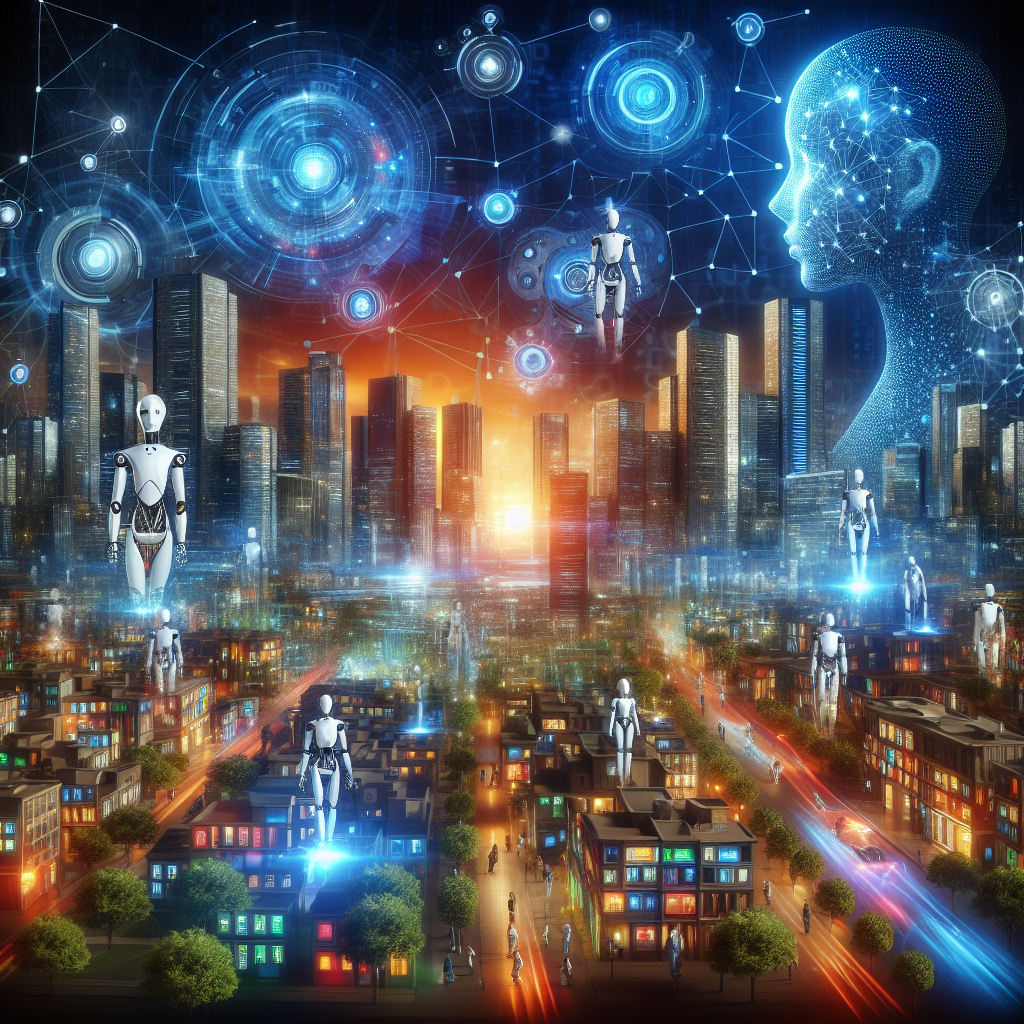The Impact of AGI on Society: How Intelligent Machines Are Changing the World
Artificial General Intelligence (AGI) is a rapidly evolving field of technology that is poised to have a profound impact on society. AGI refers to machines that possess the ability to understand and learn any intellectual task that a human can. This level of intelligence surpasses the narrow capabilities of current AI systems, which are designed for specific tasks such as image recognition or language translation.
As AGI continues to develop and become more widespread, it is important to consider the implications it will have on society. From job displacement to ethical concerns, the impact of AGI is far-reaching and multifaceted. In this article, we will explore some of the ways in which AGI is changing the world and the challenges it presents.
1. Job Displacement
One of the most immediate concerns surrounding AGI is the potential for job displacement. As machines become more intelligent and capable of performing a wider range of tasks, there is a risk that many jobs will become obsolete. This could lead to widespread unemployment and economic disruption.
While some argue that AGI will create new jobs and opportunities, others are less optimistic. A study by the McKinsey Global Institute found that up to 800 million jobs worldwide could be automated by 2030. This will require workers to adapt and learn new skills in order to remain competitive in the workforce.
2. Ethical Concerns
Another important consideration when it comes to AGI is the ethical implications of creating machines with human-like intelligence. As machines become more intelligent and autonomous, questions arise about their moral responsibilities and decision-making capabilities.
For example, who is responsible if an AGI system makes a mistake or causes harm? How do we ensure that AGI systems are programmed with ethical values and principles? These are complex issues that will need to be addressed as AGI becomes more prevalent in society.
3. Privacy and Security
As AGI systems become more sophisticated, there is a growing concern about privacy and security. AGI has the potential to collect and analyze vast amounts of data about individuals, which raises questions about how this information will be used and protected.
There is also the risk of AGI systems being hacked or manipulated for malicious purposes. Ensuring the security of AGI systems will be crucial in order to prevent potential breaches and protect sensitive information.
4. Social Impact
The rise of AGI will have a significant impact on society as a whole. It has the potential to revolutionize industries such as healthcare, transportation, and finance, leading to increased efficiency and productivity. However, it may also exacerbate existing inequalities and create new social divides.
For example, those with access to AGI technology may have a competitive advantage over those without, widening the gap between the haves and have-nots. It will be important for policymakers to address these disparities and ensure that the benefits of AGI are shared equitably.
5. Environmental Impact
AGI has the potential to help address some of the world’s most pressing environmental challenges. From optimizing energy consumption to reducing waste and pollution, intelligent machines can play a key role in sustainable development.
However, there are also concerns about the environmental impact of AGI itself. The energy consumption of AGI systems is significant, and as they become more widespread, this could have a negative impact on the environment. It will be important to develop sustainable practices and technologies to mitigate these effects.
FAQs
Q: What is the difference between AGI and AI?
A: Artificial General Intelligence (AGI) refers to machines that possess the ability to understand and learn any intellectual task that a human can. This level of intelligence surpasses the narrow capabilities of current AI systems, which are designed for specific tasks such as image recognition or language translation.
Q: How will AGI impact the job market?
A: AGI has the potential to automate many jobs, leading to job displacement and economic disruption. While some argue that AGI will create new jobs and opportunities, others are less optimistic about the impact on the job market.
Q: What are the ethical concerns surrounding AGI?
A: Ethical concerns surrounding AGI include questions about moral responsibility, decision-making capabilities, and the programming of ethical values and principles into intelligent machines. Ensuring the ethical development and use of AGI will be crucial as it becomes more prevalent in society.
Q: How can we address the privacy and security risks of AGI?
A: Addressing the privacy and security risks of AGI will require robust data protection measures, secure programming practices, and ongoing monitoring and oversight of intelligent systems. It will be important to prioritize the security of AGI systems in order to prevent potential breaches and protect sensitive information.
In conclusion, the impact of AGI on society is significant and far-reaching. From job displacement to ethical concerns, privacy and security risks, and social and environmental impacts, the development of intelligent machines will have profound implications for the future. It is important for policymakers, technologists, and society as a whole to address these challenges and opportunities in order to harness the potential benefits of AGI while mitigating its risks.

